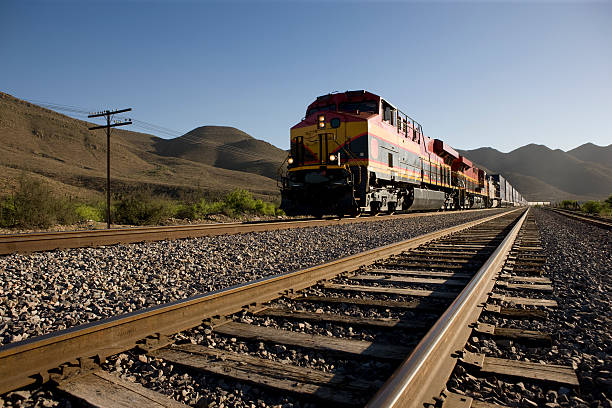The Istanbul-Tehran-Islamabad (ITI) cargo train is expected to resume from next year as the three countries – Pakistan, Turkey and Iran concluded the 10th edition of the Economic Cooperation Organization’s (ECO) transport and communications ministers’ Meeting in Istanbul.
The cargo train operation, which has been fully suspended this year, will be resumed after the key requirements for the revival of the service have been completed, the local media quoted Adil Karaismailoglu, Turkey’s minister of transport and infrastructure, as saying.
Karaismailoglu emphasized the importance of the project which is to boost economic ties between Turkey, Pakistan, and Iran. The railway line covers 6,500 kilometers between Pakistan and Turkey via Iran. It spreads about 2,600 kilometers in Iran, 1,950 kilometers in Turkey, and 1,990 kilometers in Pakistan.
In 2009, the ITI had its first trial run and was seen as the major project under ECO — a 10-member states forum with the aim to improve trade and cooperation between them. The transit route is expected to reduce the time taken for the transportation of goods through seaways.
It took about 13 days from Islamabad to Istanbul in the trial run which was later reduced to 11.5 days. The train has a maximum capacity of twenty 40-feet containers. Transporting goods from European countries to Pakistan via seaway took almost 45 days, reported Mehr news agency.
Only train journeys have been made on this route until now due to pending infrastructure developments. The route is recognized by the United Nations as an international corridor between the three countries.
Earlier, the three countries also considered a passenger train service between Islamabad, Tehran, and Ankara after the cargo train is fully operational. Pakistan Railways Minister Ghulam Ahmed Bilour at the time had said that that proposed container train from Islamabad to Istanbul via Tehran would pave the way for the operation of a full-fledged passenger train service, which would enable Pakistan to join the international railway network, Pakistan Times had reported.
However, the Quetta-Taftan railway track between Pakistan and Iran requires to be upgraded as it was built in the 1920s. In August, the Iranian Ambassador Syed Mohammad Ali Hussaini, Pakistani Railway Minister Sheikh Rasheed Ahmed had announced that the feasibility study for the line has been completed for the up-gradation of the Quetta-Taftan railway track.
He added that 112 billion rupees will be spent on the renovation and the railway line will enhance the trade between Iran and Pakistan.
A BBC report quoting traders from Quetta Chamber of Commerce said that one of the biggest problems faced by them is the difficulty in carrying out business transactions due to sanctions on Iran. He suggested a barter system to exchange goods or through banks that are exempt from such restrictions.
During Trump’s tenure, the ‘maximum pressure’ policy on Iran has been implemented through harsh economic sanctions that have led to soaring inflation and a plummeting economy in the country.
The traders cited above claimed that a delegation has suggested Pakistan’s Finance Minister Abdul Hafeez Shaikh the setting up of a branch of a Chinese bank in Quetta, that is exempted from such restrictions, to enable a smooth payment system.
Source: The Eur Asian Times







